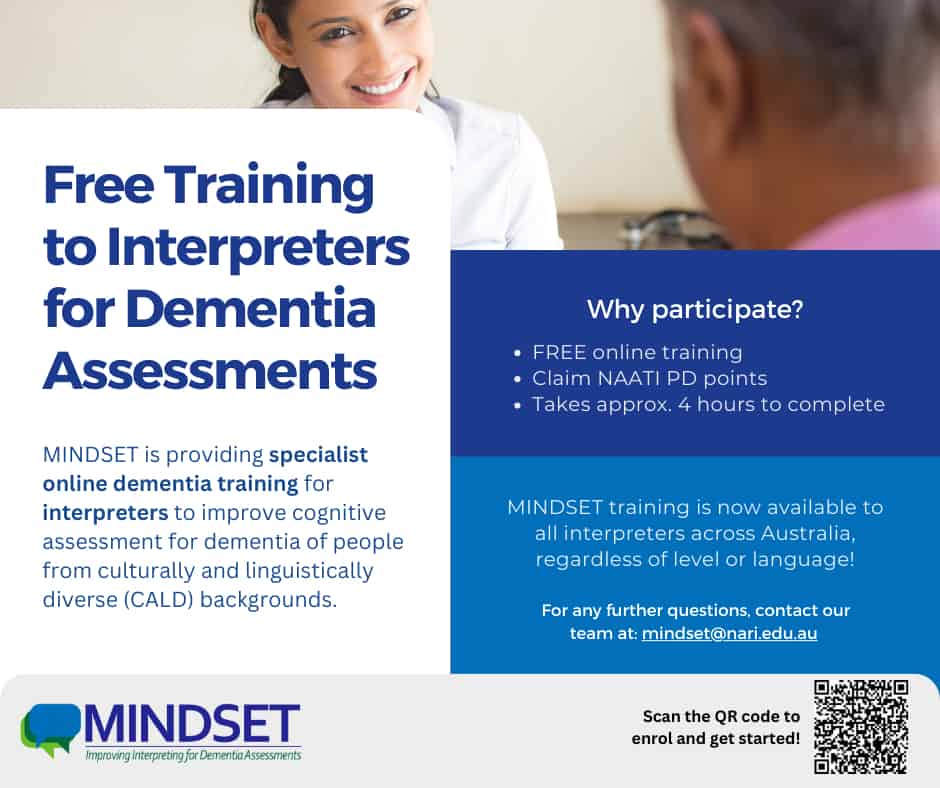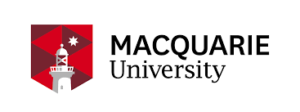Exciting News for Interpreters in Dementia Care!
We are thrilled to share that The MINDSET Specialist Online Dementia Training for Interpreters is now live!
This free, online, self-paced course is a game-changer for interpreters working in the challenging and crucial field of dementia care.
All Graduates Interpreting & Translating is proud to be a Partner Organisation in the development of this training.
We would like to thank Bianca Brijnath, the National Ageing Research Institute team, and all the incredible Partner Organisations for their dedication and hard work in bringing this training to life.
Their commitment to enhancing the quality of care for individuals with dementia is truly commendable.
Special thanks to the National Health and Medical Research Council (NHMRC) for their generous grant, which made this initiative possible.
We encourage all interpreters working in dementia care to take advantage of this valuable resource. Let’s equip ourselves with the knowledge and skills needed to make a meaningful impact in the lives of those we serve.
Click here to access the course



 Project Title: Assessing the Impact of Readability on Translation Quality and Productivity
Project Title: Assessing the Impact of Readability on Translation Quality and Productivity